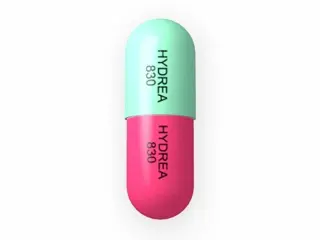Cancer

Discover a wide range of effective cancer medications and supportive care products to aid your treatment and improve quality of life. Shop trusted brands and find affordable options for chemotherapy, pain relief, and symptom management, all available with secure ordering and fast delivery.
Cancer is a serious illness that requires careful treatment. Many medications help to manage cancer. These drugs can slow down or stop cancer growth. Here is a review of popular cancer medications available in this category.
Aldara (Imiquimod) is mainly used for skin cancers and precancerous lesions. It works by boosting the immune system to attack abnormal cells. Aldara is applied topically. It is effective for superficial basal cell carcinoma and actinic keratosis. Patients may experience redness, itching, or burning at the application site.
Alkacel is a brand of cyclophosphamide. It is a chemotherapy drug used to treat many types of cancers, including lymphomas and breast cancer. Alkacel works by interfering with DNA replication in cancer cells. It is taken orally or by injection. Side effects include nausea, hair loss, and decreased immunity.
Armotraz is a brand name for anastrozole. This medication is used mainly in hormone receptor-positive breast cancer. It lowers estrogen levels in the body. Estrogen can promote growth of some breast cancers. Armotraz is taken orally once a day. Common side effects include hot flashes, joint pain, and fatigue.
Capnat contains capecitabine. It is a chemotherapy pill used mainly in colorectal and breast cancer. Capnat is converted into 5-fluorouracil inside the body. This affects cancer cells by disrupting DNA synthesis. It is usually taken twice a day with food. Side effects involve diarrhea, hand-foot syndrome, and nausea.
Casodex contains bicalutamide. It is used in prostate cancer treatment. Casodex blocks the effect of male hormones like testosterone. These hormones can accelerate prostate cancer growth. It is taken orally, usually once daily. Side effects may include breast tenderness, hot flashes, and gastrointestinal discomfort.
Hydrea is the brand for hydroxyurea. This medicine treats some blood cancers like chronic myeloid leukemia and certain types of lymphoma. Hydrea works by inhibiting DNA synthesis and slowing cancer cell growth. It is taken orally. Common side effects are low blood counts, mouth sores, and skin changes.
Leukeran contains chlorambucil. This is another oral chemotherapy drug. It is often used to treat chronic lymphocytic leukemia and lymphoma. Leukeran disrupts cancer cell DNA to stop growth. Side effects include nausea, bone marrow suppression, and infections.
Methotrexate is a well-known chemotherapy and immunosuppressive drug. It is used in many cancers, including leukemia, breast, and lung cancer. Methotrexate inhibits folic acid metabolism crucial for DNA replication. It can be given orally or by injection. Side effects include liver toxicity, mouth ulcers, and low blood counts.
Nolvadex is the brand for tamoxifen. It blocks estrogen receptors on breast cancer cells. This helps prevent the growth of hormone-dependent tumors. Nolvadex is commonly used for breast cancer prevention and treatment. It is taken orally once or twice daily. Side effects might be hot flashes, increased risk of blood clots, and nausea.
Xeloda is the brand name for capecitabine, similar to Capnat, but often branded separately. It works as an oral prodrug of 5-fluorouracil. Xeloda is used mainly in colorectal cancers and some breast cancers. It is taken twice daily with meals. Side effects include diarrhea, hand-foot syndrome, and fatigue.
Zofran (ondansetron) is not a cancer treatment but an important supportive medication. It helps prevent nausea and vomiting caused by chemotherapy. Zofran is given before chemotherapy sessions. It can be taken orally or by injection. Side effects are mild and may include headache and constipation.
These medications are often prescribed based on the type of cancer and patient health. Each drug has specific indications and side effects. Combining treatments may improve outcomes. Managing side effects is important during cancer therapy. Regular doctor visits and monitoring are required for safe use.
Overall, the medicines listed provide multiple options in cancer treatment. They include hormonal therapies, chemotherapy, immunomodulators, and supportive care. Proper use under medical supervision is critical. Patients should report side effects promptly. This helps to adjust treatment for the best results.









